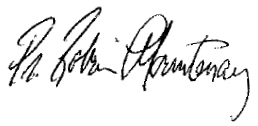Sermon
Wake Up!
While doing some banking at the Valley Brook branch of Atlantic Stewardship Bank this morning, I heard “The Little Drummer Boy” playing over the sound system. Although it’s two days before Thanksgiving as I write this, the season for Christmas music has arrived, at least in the secular or, more accurately perhaps, “civilly religious” world. I’ve often stated that some of my favorite hymns of the church year are Advent hymns. Before I’m ready to sing or listen to much-beloved (and not so well-liked) Christmas carols, I need my annual dose of Advent hymns.
As I look through our hymnal, there is so much Advent music that fills my head and heart with expectation: Charles Coffin’s “Advent of Our God” (LBW 22) and “On Jordan’s Banks the Baptist’s Cry” (LBW 36); the ancient “O Come Emanuel” (LBW 34); Samuel Wesley’s majestic “Lo He Comes with Clouds Descending” (LBW 27); the haunting “The King Shall Come”; the stirring “People Look East” (WOV 626). The list goes on. There’s something about Advent hymns – words and music – that evokes anticipation in me. My absolute favorite Advent hymn is known in German as Wachet Auf (Wake Up!) and in English as “Wake, Awake, for Night Is Flying” (LBW 31).
As you might expect from a favorite of mine, Wake, Awake is a 16th century German chorale. It was written by – surprise, surprise – a Lutheran pastor, Philipp Nicolai, who also wrote an Epiphany masterpiece, “O Morning Star, How Fair and Bright!” (Wie Schon Leuchtet, LBW 76). The hymn is rife with biblical references, most notably Matthew 25:1-13, the parable of the wise and foolish virgins, but also Revelation 19:6-9 and 21:6, 1 Corinthians 2:9, Isaiah 52:8, and Ezekiel 3:17. All of these passages are apocalyptic – promises and visions of the end time. The words, combined with Pr. Nicolai’s moving tune, are fraught with anticipation. 133 years later, Johann Sebastian Bach was so taken with the hymn that it became the basis of his Cantata 140, Wachet auf, ruft uns die Stimme.
As we saw last month with Martin Rinkart’s “Now Thank We All Our God,” great hymns are often born of suffering. Nicolai was a staunch Lutheran and often found himself in conflict with neighboring Catholics or Calvinists, depending on the location of his various pastorates. While serving a church in the city of Unna in Westphalia, he feuded with local Calvinists and endured a plague epidemic. During this time he wrote Frewden-Spiegel dess ewigen Lebens (Mirror of Joy of the Life Everlasting), a collection of hymns, of which Wake, Awake and O Morning Star were two. His purpose in writing this collection was “to leave behind me (if God should call me from this world) as a token of my peaceful, joyful Christian departure, or (if God should spare me in health) to comfort other sufferers whom He should also visit with the pestilence….”
While Nicolai’s goals in writing this hymn may seem lofty, I would argue that he succeeds. Singing Wake, Awake is an exercise in faith – shall we call it catechetical calisthenics? Singing great hymns not only allows us to describe our faith in song, it also strengthens and emboldens our faith. The hymnist has put into words what is in our hearts and minds, and our singing reinforces what is there. I hope you’ll sing with the hope, joy, and anticipation of Pastor Nicolai as you sing Wachet Auf and other Advent hymns this season. I also hope you’ll consider the way they prepare us for singing the joyous Christmas carols we all know and love.
As Pastors Nicolai and Rinkart demonstrated so movingly, life’s challenges and tragedies can actually increase our faith and strengthen our hope. Wake from your winter slumbers – Christ is coming! I pray that you and yours have a hopeful Advent and a joyous Christmas!
In Jesus’ name,

Pastor Robert M. Mountenay
Site designed and developed by The SPI Group.
